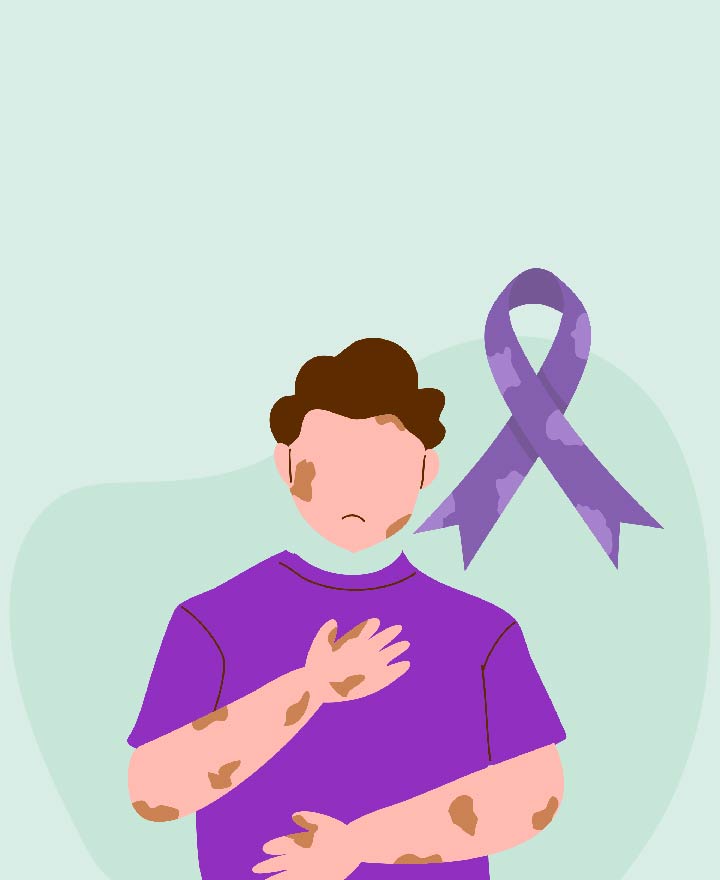

All You Should Know About Leprosy Stigma
Leprosy is an age-old disease and while its occurrence is rare in today’s time, stigma around it still prevails which can only be eradicated by spreading awareness about it. Take a look at this article to know all about leprosy and stigma related to it.
What is Leprosy?
Also known as Hansen’s disease, leprosy is a chronic infectious disease caused by Mycobacterium leprae mainly affecting upper respiratory tract, eyes, nose lining, and skin. Its symptoms worsen over time and it can even cause nerve damage and serious disfigurement, if left untreated. Leprosy symptoms include persistent lumps on skin and skin lesions, muscle weakness, and loss of sensation in arms and legs. Usually, leprosy symptoms take years to develop and appear.
Social Stigma in Leprosy
Leprosy, an infectious disease, is a highly stigmatized disease. It directly affects patients’ physical, psychological, social and economic well-being. Stigma related to leprosy are external manifestations of the disease, cultural and religious beliefs, fear of transmission, association with people considered inferior and public health-related interventions.
Reasons of Stigma
The stigma of leprosy has three distinct roots:
• the historical legacy of it being a curse or result of a committed sin.
• the physical deformity and disability that result from the disease.
• the leprosy ulcers have an unmistakable appearance.
Types of Stigma
The stigma of leprosy was separated by van Brakel into public and self-stigma.
The effects of Public Stigma are seen as:
• Evading or avoiding the affected individual.
• Maintaining a rigid distance, physical and social, between the leper and others in society.
• Feelings and expressions of deep repulsion at the deformity of leprosy.
• Absence of social support, in the shape of acceptance, employment, financial security, and social connection.
The effects of Self Stigma are seen as development of a feeling of self-hatred and loathing. This is expressed as:
• Low self-esteem.
• Lack of socialization, probably driven by the thought that others do not accept the knowledge of leprosy.
• Avoiding contact with loved ones directly or indirectly.
Impact
The impact of the stigma of leprosy has great and widespread consequences on both patient and family.
- Firstly, it prevents the early diagnosis of leprosy as people who fear that they may have it simply avoid all opportunity to have the diagnosis confirmed, giving space for the development of disfiguring skin and nerve involvement.
- Secondly, the diagnosis of leprosy still dooms a person to instant exile from family and community.
- Thirdly, though good screening and chemo- or immune-prophylaxis programs are in place in many endemic nations, people do not utilize them simply out of reluctance to face the stigma. This leads to deterioration of one’s social and personal health situation.
Fighting The Stigma of Leprosy
The greatest need of today is to change the viewpoint by creating awareness about leprosy and promoting early diagnosis and treatment, which in turn can help to prevent deformity and disability in affected individuals. Vigorous educational efforts on a community basis can lead to perceptual changes over time and the community leaders need to be motivated through continuing exposure to the truth about leprosy.
Moreover, well-paying jobs must be made freely available to all leprosy patients, so that they can build up their self-esteem and become financially independent. This is called socioeconomic rehabilitation, and it will play a crucial role in changing the public attitude towards leprosy.
Conclusion
In spite of the persistence of an intensely negative attitude towards leprosy, by creating & spreading awareness we can get rid of the pervasive shroud of horror surrounding the condition.
One of the important components of our overall wellness is also being financially secured. Healthcare emergencies can happen any time, but a good health insurance can protect you from such uncertain situations. To know more about it, click here
Source: Webmd, SSMJ, News Medical
Disclaimer: This blog provides general information and discussions about health and related subjects. The information and other content provided in this blog, website or in any linked materials are not intended and should not be considered, or used as a substitute for, medical advice, diagnosis or treatment. Kindly contact your Doctor before starting a new medicine or health regime.
Related Articles
Staying Strong Post 60 - Why Strength Training Is Vital For Seniors
Lifestyle Tips To Remain Healthy At An Older Age
Common Old Age Problems – Causes & How To Control Them
Save Tax with Senior Citizen Health Insurance under Section 80D
Senior Citizen Should Have Health Insurance. Know Why
Published on March 14, 2023

















 Health Insurance
Health Insurance  Travel Insurance
Travel Insurance  Car Insurance
Car Insurance  Cyber Insurance
Cyber Insurance  Critical Illness Insurance
Critical Illness Insurance
 Pet Insurance
Pet Insurance
 Bike/Two Wheeler Insurance
Bike/Two Wheeler Insurance  Home Insurance
Home Insurance  Third Party Vehicle Ins.
Third Party Vehicle Ins.  Tractor Insurance
Tractor Insurance  Goods Carrying Vehicle Ins.
Goods Carrying Vehicle Ins.  Passenger Carrying Vehicle Ins.
Passenger Carrying Vehicle Ins.  Compulsory Personal Accident Insurance
Compulsory Personal Accident Insurance  Travel Insurance
Travel Insurance  Rural
Rural